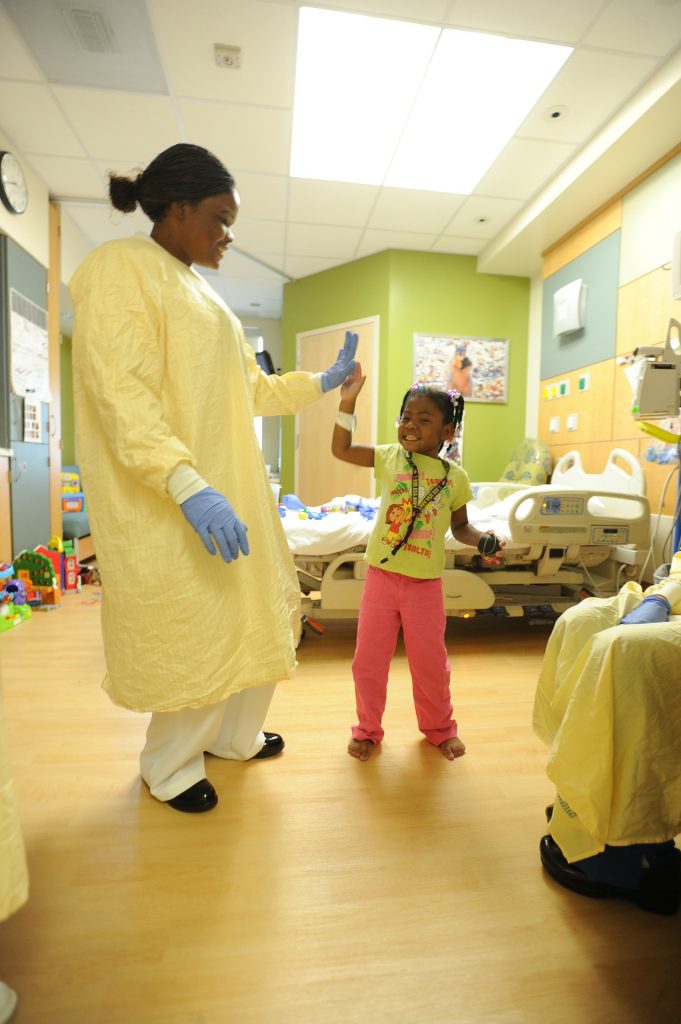A registered nurse is a medical professional who provides care and assists physicians with their work.
RNs provide encouragement and knowledge to patients and their families.
The field of registered nursing has multiple practice specialties as well as advancement opportunities.
Below, we will go through the skills, training, education the RNs need, and more aspects of the job.
Article Table of Contents
What Does a Registered Nurse Do
Registered nurses provide care for patients and comfort their caretakers or families.
They assume such tasks as providing treatment, supporting the medical team, supervising and educating, and counseling patients and families.
RNs need a set of necessary skills, which include observing, speaking, and analyzing.
Responsibilities
- Record symptoms, observations, and medical histories of patients.
- Administer medications and treatments.
- Use and oversee medical equipment to track conditions and vital signs of patients.
- Assist physicians and other medical professionals with examinations, diagnosis, analysis or results, and treatment plans.
- Establish care plans for patients or contribute to the existing ones.
- Inform patients and their families about the recovery process, managing injuries, and illnesses, and post-treatment activities.
- Supervise nursing assistants, home health aides, and licensed practical nurses.
The exact duties of registered nurses can be defined by the type of patients and their conditions.
For example, nurses in pediatrics work with children while geriatric nurses serve elderly patients.
Nurses in neonatal units observe and report the weight and heart rate of the newborns.
Oncology nurses assist with cancer treatment.
Essential Skills
Emotional:
Registered nurses have to manage emotions in case of emergencies when dealing with patients and their families experiencing stress or trauma.
RNs should also be empathetic and compassionate toward patients and their families.
Organizational:
Registered nurses may have to treat multiple patients with various conditions at the same time.
They should organize work areas and charts to know the necessary details to administer medications and treat patients correctly.
Organized RNs can deliver medications at the right time and attend to various needs of patients.
Physical:
The shifts of registered nurses typically last for twelve hours, so they need good stamina to be able to stand and walk for long hours.
Physical skills also imply the careful injections of medicine, vaccinations, or other treatment as well as moving patients and equipment.
Communication:
With efficient communication skills, RNs can interact with physicians and other medical professionals as well as deliver instructions to patients and their families.
They should be able to listen attentively and understand the complaints of patients, as well as for instructions and statements from physicians.
They should deliver clear instructions to patients and their families so that they understand when and how to take medications and follow other treatment and recovery instructions.
Analytical:
Registered nurses offer the course of action and provide care based on the analysis of conditions and observations.
Registered nurses also need basic knowledge of formulas and conversions of measurements to administer medications accurately and correctly.
How to Become a Registered Nurse
Registered nurses can take multiple paths to start this career.
While the degrees can be different to some extent, all of them cover essential medical and scientific knowledge.
With bachelor’s, master’s, and even doctorate degrees, you can advance to higher and senior positions, such as academic, administrative, and others.
Training and Qualifications
Registered nurses need to complete a four-year bachelor of science in nursing (BSN) program or a two-year program for an associate’s degree, or obtain a nursing diploma run by a hospital.
These classes cover such subjects as anatomy, physiology, nutrition, psychology, behavioral science, chemistry, and microbiology.
In these programs, they can also gain supervised clinical experience.
Students who take the BSN program need to learn skills in physical sciences, communication, leadership, and critical thinking.
Students that complete one of these programs can get entry-level nursing positions.
Besides, with a Bachelor of Science or a master’s degree, they can obtain administrative, teaching, consultative, or research positions.
Some employers prefer RNs with a BSN, some even set it as a requirement.
Everywhere across the country, registered nurses need to obtain a license.
Candidates usually attend an approved nursing program and must pass the National Council Licensure Examination for RNs (NCLEX-RN).
Experience
RNs can gain supervised clinical experience through nursing degree programs.
According to Nurse Journal, aspirants can take internships and learn various aspects of a hospital operation, which can be an advantage in the hiring process.
Aspiring nurses can also learn about the medical field and hospital operations by volunteering for research, data entry, or clinical clerking jobs.
Working Hours
The position of a registered nurse is full-time.
According to the Bureau of Labor Statistics, only one out of six nurses held part-time positions as of 2014.
RNs in the hospitals usually work different shifts, including weekends, nights, predawn hours, and other odd hours.
The shifts typically last for 12 hours.
About six out of ten nurses are employed in hospitals.
RNs that work in clinics, offices, schools and other settings that don’t operate 24/7 have more regular hours.
However, some clinics and primary or urgent care facilities may offer services for patients in the evenings or weekends.
Career Outlook
The employment rate of registered nurses is projected to grow by 16% by 2024.
This means 439,300 new job openings.
The growth is owed to the aging population and easier access to healthcare and insurance.
With a vast number of personal injuries, the need for registered nurses in intensive care, critical care, and emergency rooms will grow.
According to the National Highway Traffic Safety Administration, in 2015, 35,092 fatalities were registered due to the vehicle wrecks.
The largest employer for registered nurses is the General Medical and Surgical Hospitals sector, with 1,587,040 employees.
Hospitals are trying to reduce the stay of patients, including the elderly ones, so the care will shift to nursing facilities and home health providers.
According to the Bureau of Labor Statistics, the Home Health Care Services sector was the third biggest employer of registered nurses, with 173,590 RNs.
Nursing Care Facilities hired 154,060 registered nurses, staying behind hospitals, home health care, and physician offices.
The salary of registered nurses is $71,000 per year.
The top 10% of RNs make over $101,630.
With experience and academic degree, RNs can advance to higher and better-paying positions.
Conclusion
Registered nurses should have certain skills and traits to fulfill their tasks and be a medical provider, educator, comforter, and supervisor.
With the increased demand for medical services, there are broad opportunities for RNs.
The primary reasons include access to healthcare, traumatic activities, motor vehicle wrecks, and the aging population.
The increase of the aging population also has an impact on employment in home health and nursing facilities sectors.
The salary of RNs depends on the type of sector, private or public, experience and duties, as well as the geographical location.

